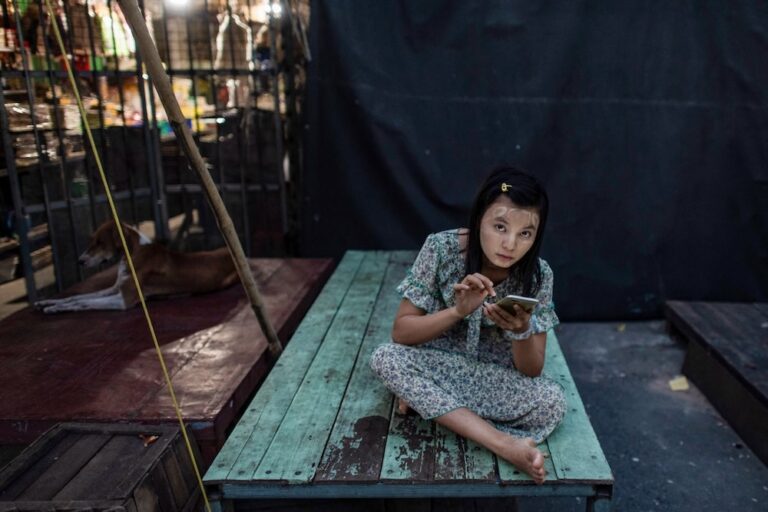Politicians preparing to contest the 2010 general elections explain that they are not permitted to publicise their activities in the domestic media.
(Mizzima News/IFEX) – Politicians preparing to contest the 2010 general elections have called for media freedom before Burma goes to the polls.
“We are not permitted to publicize our activities in the domestic media even as the 2010 election is drawing close. Now it’s too late to present our views to the people,” Democratic Party Chairman Thu Wei told Mizzima.
Similarly, Shwe Ohn, chairman of the United Democratic Front, said that the role of the media was badly needed as the parties’ stand and opinions need to be publicized. The party was established in 2008.
“Just issuing party statements is ineffective because it will only reach people who are close to us. Speaking through the media will be more effective. But we are not allowed it,” Shwe Ohn said.
The Democratic Party Chairman Thu Wei and Ahmyotharyar Win Naing organized a lecture on 14 October 2009 in Bahan Township, Rangoon Division, entitled “Review Discussion on Burmese Politics in 2010”. The event was attended by over 30 journalists from the foreign and domestic media. However, they were not allowed to report on the proceedings.
Moreover there is a law in force which restricts the assembly of more than five people in Burma. As a result, the parties’ activities are hampered, Thu Wei said. “Since the assembly of people is restricted, we have to hold such meetings under the guise of birthday parties and alms offerings,” he explained.
The restrictions on political parties are outlined in the election commission law. The political parties’ registration law is yet to be enacted and promulgated.
At the time of the 1990 general elections, the election commission law and the political parties’ registration law were enacted and promulgated one year after the polls were announced.
Thu Wei, who contested in the 1990 election under the aegis of the Democratic Party, said that restrictions on the media are now tighter than they were in 1990. Thus far, the laws for the 2010 elections have not been officially promulgated.
“Censorship before 2010 should not be in vogue. We’d like to see and hear the voices of those who are working for the election, including government officials. They are doing practical work. This way (the officials) cannot lie to the people and people can scrutinize them,” Thu Wei said.
An open letter to the junta’s Information Minister was posted on the Internet on 27 October. The critical letter included suggestions on how to overcome weaknesses of the Burmese media in exile and the domestic media.
“State leaders and politicians are owned by the people. There must be transparency in front of the public so that people can object if they don’t like these politicians,” the letter read, while also stating that the Burmese media in exile should be unbiased and not only report on the opposition forces.
The open letter also included criticism of the domestic media, saying that they were only reporting on figures and facts but not news, which made their reporting “boring and uninteresting for the people.”


